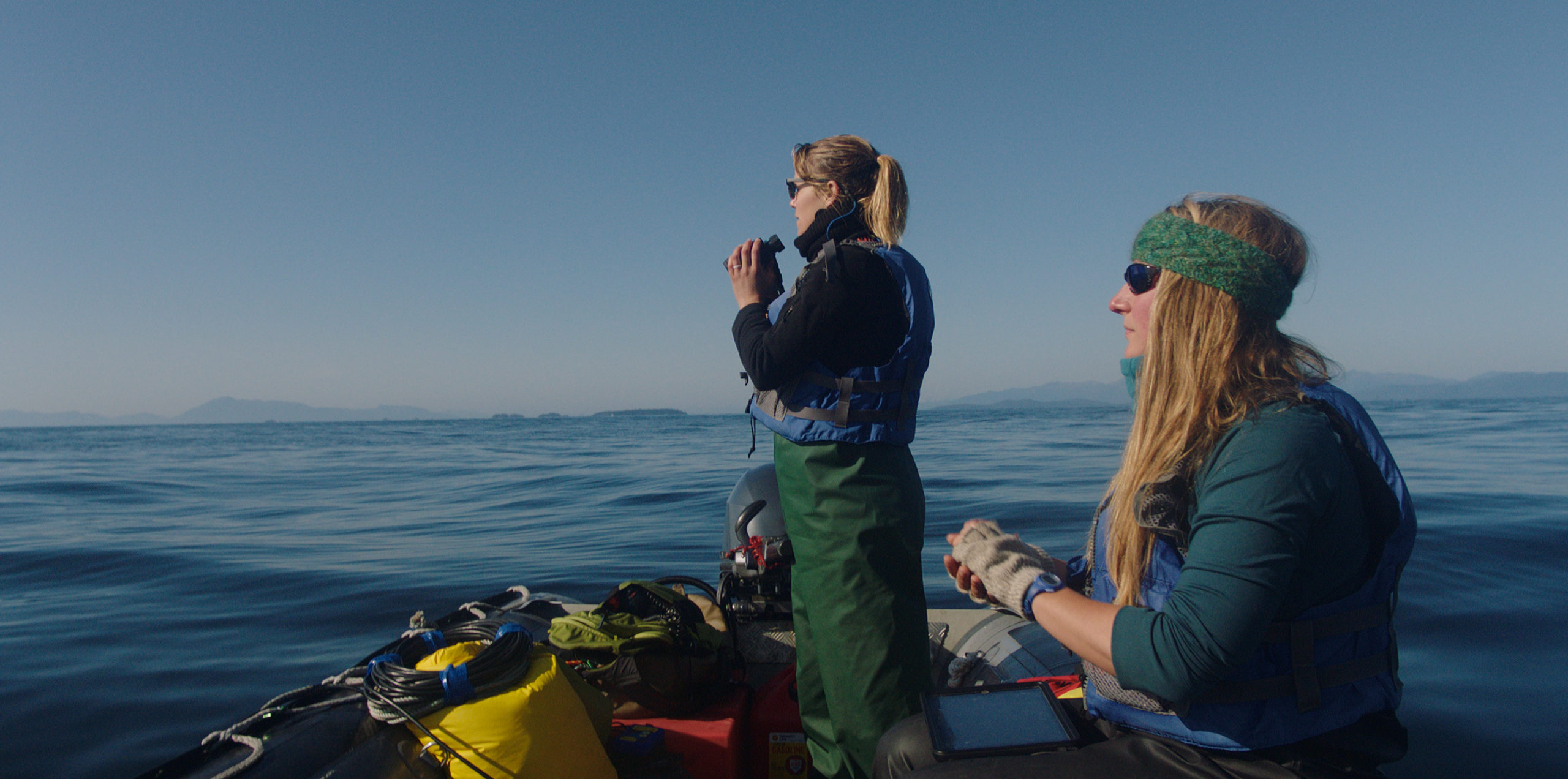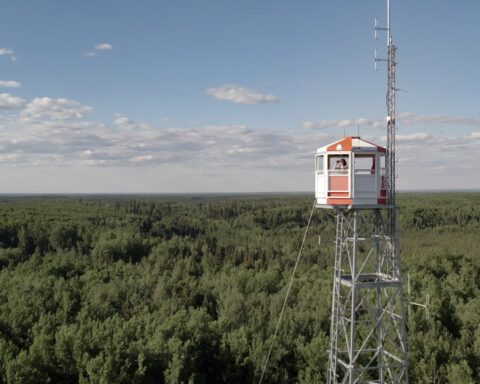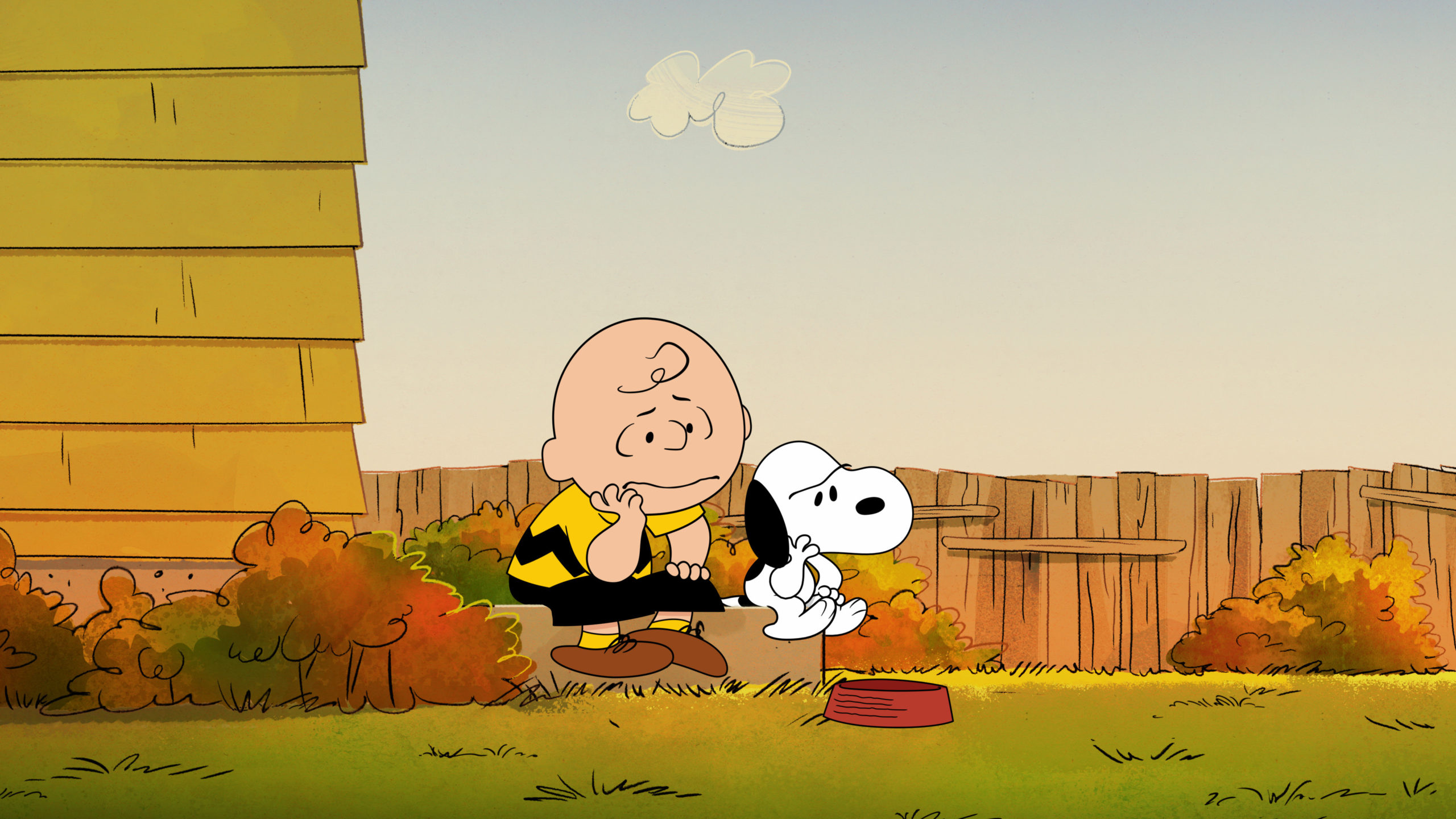Fathom
(USA, 85 min.)
Dir. Drew Xanthopoulos
“I’m trying to start a conversation,” explains Dr. Michelle Fournet in Fathom. Dr. Fournet is one of two researchers in the doc. The other is Scottish researcher Dr. Ellen Garland. Both women study the complexity of communication between humpback whales. They embark on parallel research missions exploring the non-human communication and see an intricate form of culture and language in the whale song that ripples through the oceans’ waters. Connected by a love for nature, a passion for research, and a drive to share knowledge, Fournet and Garland ultimately seek to draw connections with the whale music so that humans can better understand themselves.
Fournet studies acoustic ecology at the Center for Conservation Bioacoustics at the Cornell Lab of Ornithology. Garland, meanwhile, specializes in bioacoustics and behavioural ecology at the University of St. Andrews. Their approaches complement one another, as both researchers observe whale song and its transmission across whales worldwide. Fournet and Garland explain their research, making it accessible for audiences who lack their expert grasps for science, but they do so without bogging the film down in exposition. Fathom moves sprightly as the researchers ready for their fieldwork. In short, their research indicates that whale song transmits from herd to herd, which suggests communication between the humpbacks and implies that the cetaceans developed culture long before the first humans stood on two feet. This is a surprising nugget about the hidden wonders of the natural world.
The scientists embark on their respective expeditions—Fournet to Alaska and Garland to the South Pacific. Director Drew Xanthopoulos captures the thrill of the chase as they seek out humpback whales and, more importantly, whale song. The gist of the research is that Fournet and her two accompanying colleagues play recordings of whale song into the ocean. Once playback ends, they listen carefully. Searching for a call and response pattern, so to speak, the research tells them about the whales’ communication habits. Somewhat similarly, Garland lends an ear to the depths of the ocean and records whale vocalisations with hopes of hearing the same noises she captured half a world away.
Xanthopoulos, shooting the film himself, captures some beautiful landscapes and views from the oceans. It’s easy to feel the pull that draws these researchers to nature. They find a unique intimacy in the expansiveness of the Alaskan coast and the Pacific’s rolling waters, respectively. The thrill of discovery guides the film as Fathom witnesses the monotony, boredom, loneliness, and frustration entailed with working in such remote conditions.
As the scientists leave the urban jungles and thrive in nature, they speculate about what their research says about human culture. Fournet, for one, articulates the comfort of escaping urban life, noting that she isn’t lonely because she finds what’s precious and brings it with her. “It makes you more human,” she says of this retreat to nature and engaged connection with the Earth. As the month-long study progresses, she shares her desire to have a child while continuing her research, and wonders what the future holds for her generation of women who can create new forms of communal living to share common goals. Similarly, the long study weighs on Garland as she extends the expedition when few whales appear in the early days. Her extended absence from her husband and their pets is a necessary sacrifice, however, and the discoveries of her research make it all worthwhile.
Xanthopoulos signals from the outset that Fathom isn’t a typical nature doc. If Arrival is your kind of science-fiction movie, then Fathom is the nature doc for you. Xanthopoulos spotlights the research process and immerses viewers in the research of these two women, their passions and sacrifices, and their quests to teach us more about the natural world. From the opening scene, Fathom sees Fournet hunched in her lab while listening to recordings of whale song. Garland, meanwhile, graphs the song patterns of humpbacks and deconstructs the readings like a violinist studying her next symphony. The visualisation of the whale song, as well as the sounds themselves, evoke the non-linear language of the extraterrestrials of Denis Villeneuve’s drama. One sees something of Amy Adams’ Louise Banks in Fournet and Garland—headstrong left-brainers who carry the weight of their sacrifices, but know that their work is not in vain.
The music by New Zealand-born composer Hanan Townshend, who recently scored the Canadian doc His Name Is Ray, adds a propulsive flight of wonder to the researchers’ quests. There are no extended interludes of underwater photography. No montages of whales swimming and no gruesome shots of whales tangled in nets. The film smartly restricts a viewer’s sights to what the researchers see. Fathom is a film about the limits of human knowledge and the apparent limitlessness of our curiosity. As a nature doc, moreover, it conveys our responsibility towards maintaining sustainable practices to preserve and protects the creatures with which we share the Earth. Fathom continually piques one’s desire to know what else exists beneath the surface.












